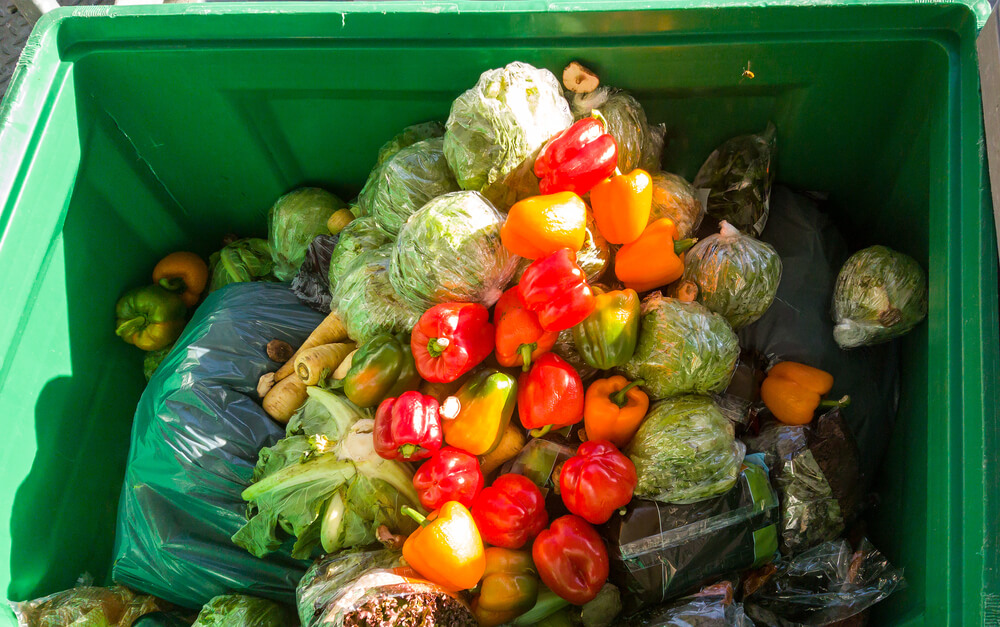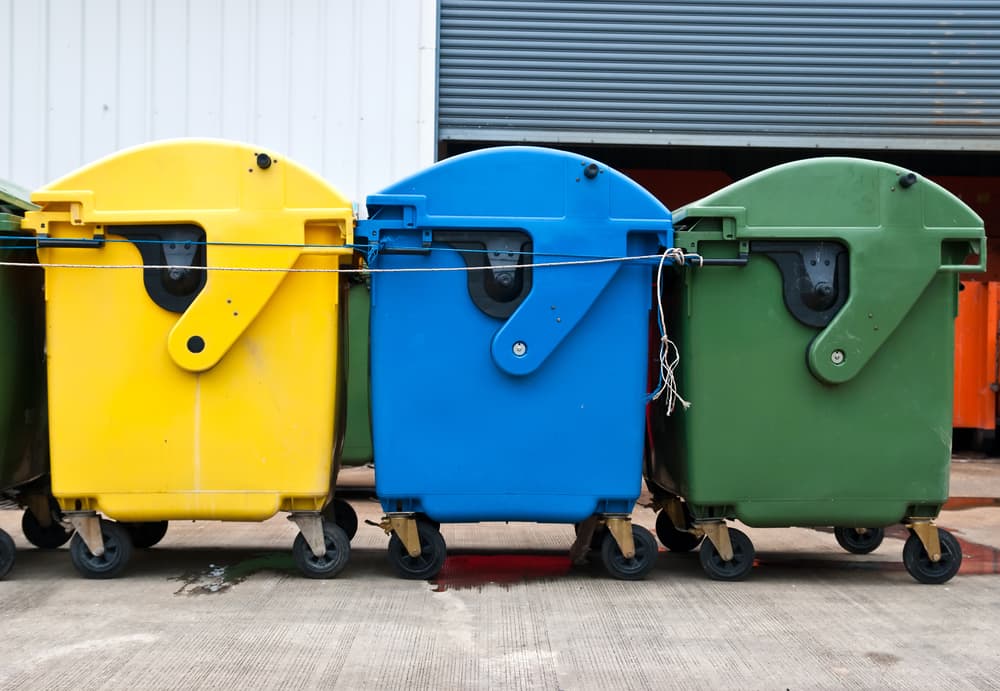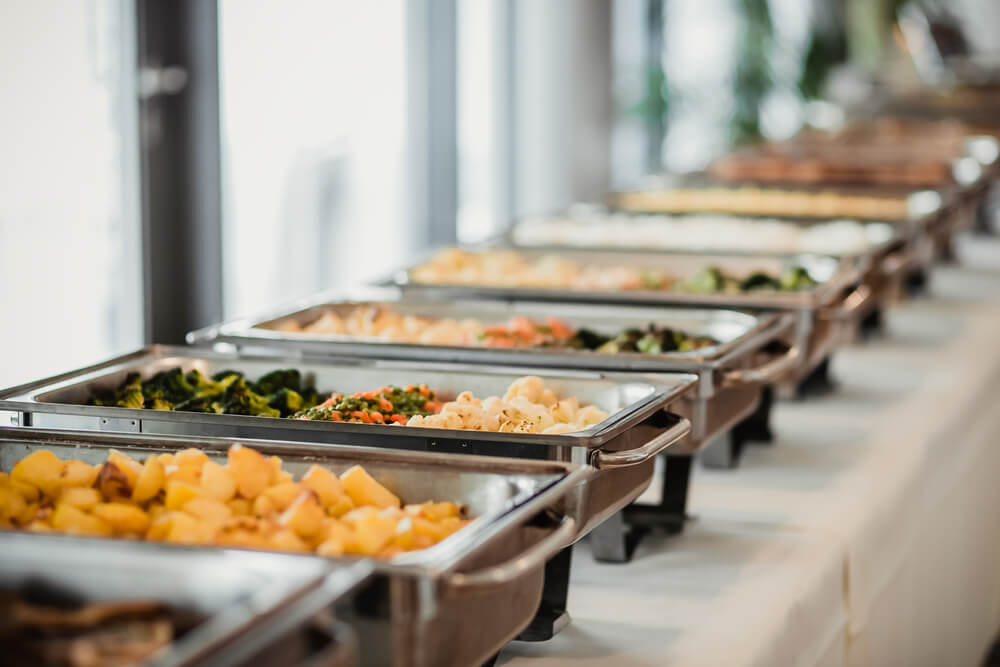May 9th, 2024

In the bustling world of business, it’s easy to overlook the food that gets tossed out. But did you know that reducing food waste can be a game changer for your business? It’s not just about being eco-friendly; it also makes smart business sense.
In this blog, we’re going to walk you through some simple yet effective ways to cut down on food waste. Whether you run a cafe, a supermarket, or any business where food is part of the operations, we’ve got practical tips that can make a big difference.
This article covers:
- Reasons for High Levels of Commercial Food Waste
- Strategies to Reduce Commercial Food Waste
- Food Waste Regulation Changes in England
- Manage Your Commercial Food Waste with NRC
Reasons for High Levels of Commercial Food Waste
Commercial food waste is a significant issue plaguing the food industry. There are several reasons for the high levels of waste in commercial settings, ranging from overproduction to improper handling and storage of perishable items. Other causes of food waste include:
- Poor stock rotation
- Over ordering of ingredients
- Unpopular dishes
- Use-by dates and labelling issues
Understanding the primary factors contributing to this problem is a big part of developing effective solutions to minimise food waste and its environmental impact. By addressing these underlying reasons, businesses can also benefit from cost savings and improved sustainability in their operations.
The Impact of Commercial Food Waste
The impacts of commercial food waste are significant on both environmental and financial levels.
Environmental consequences of food waste in commercial kitchens include increased greenhouse gas emissions from rotting food in landfills, as well as the unnecessary consumption of natural resources such as water, energy, and land used in food production.
Financially, food waste leads to a loss of investment in purchasing the food, as well as additional costs for waste disposal.
Reducing food waste not only benefits the environment by reducing greenhouse gas emissions and saving natural resources, but it also demonstrates good business practice and can increase profitability.
Additionally, reducing food waste can enhance a company’s public image, attract environmentally-conscious customers, and reduce the risk of financial losses associated with food waste.
Strategies to Reduce Commercial Food Waste
Implementing effective strategies to reduce this waste is crucial for sustainability and cost savings. In this section, we will explore various approaches and techniques that businesses can employ to minimise food waste in their operations.
From inventory management and portion control to donation programmes and composting, there are many tactics that can be implemented to tackle this widespread issue.
By adopting these strategies, businesses can not only reduce their environmental footprint but also improve their bottom line.
Let’s delve into some practical and effective ways to reduce commercial food waste.
Education and Training for Employees
By educating and training employees on food waste reduction, businesses can minimise their carbon footprint and save money. Correct food storage and cooking techniques, maintaining cleanliness, and preventing cross-contamination are crucial practices that employees need to be trained in to reduce food waste.
Proper food handling procedures can help extend the shelf life of food products and reduce spoilage. Educating employees on portion control and the importance of utilising all parts of perishable items can also make a significant impact on reducing food waste.
In addition, training employees on the signs of spoilage and the proper disposal of food items can help to minimise the negative effects of food waste in landfills. Overall, employee education and training in food waste reduction is a vital starting point for any business that deals with food.
Reducing Portion Sizes in Restaurants
Reducing portion sizes in restaurants is essential for minimising food waste and increasing profits. By offering different portion sizes, restaurants can better cater to varying customer appetites and reduce the amount of food that goes uneaten.
This not only helps to lower food production costs but also decreases the environmental impact of wasted food. Additionally, reducing portion sizes can help to increase profits by enabling restaurants to sell more servings of the same dish over time.
Gathering feedback from service staff is an important part of identifying which dishes need portion size adjustments. The frontline staff have firsthand experience with customer preferences and can provide valuable insights into which dishes may have portion sizes that are too large or too small.
NRC provide dedicated waste management services for restaurants.
Plan and Adjust Menus at Restaurants
In order to reduce food waste in restaurants, it is important to keep an eye on popular and unpopular dishes. By paying attention to which dishes are frequently ordered and which ones are often left uneaten, restaurants can adjust and plan their menus accordingly.
This involves including more of the popular ingredients that are most likely to be ordered, and therefore less food will be wasted.
Additionally, restaurants can consider the potential for multi-use ingredients, meaning that the same ingredient can be used in multiple dishes, reducing the risk of it going to waste. Offering more choice over side dishes can also help to reduce waste, as customers are more likely to eat the side dish of their choice.
Menu planning is key to reducing waste, as it allows restaurants to plan portion sizes more accurately and adjust the amount of ingredients needed for each dish. This not only reduces waste but also helps to control costs.
Ultimately, by paying attention to customer choices and preferences, and planning and adjusting menus accordingly, restaurants can significantly reduce the amount of food wasted and operate in a more sustainable manner.
Store and Label Food Correctly
When storing food, it is important to correctly label airtight containers to keep track of the contents and ensure the use of the FIFO (First In, First Out) method. Label each container with the name of the food item and the date it was stored. This will help in using the oldest items first to prevent spoilage and food wastage.
Proper food storage is crucial to extend the shelf life of perishable items such as dairy, meat, and fruits. Perishable items should be stored in the refrigerator at the recommended temperature to slow down the spoilage process. Dry goods like grains, cereals, and canned foods should be stored in a cool, dry place away from direct sunlight.
Donating Surplus Food From Shops
Many shops and businesses have surplus food that they are unable to sell or use. One way to deal with this surplus is to donate it to local charities and organisations that work to distribute food to those in need.
Whether you’re a supermarket or a butcher, you can reach out to local charities to find a suitable partner for their donations. It is important to understand the types of food that can be donated, including non-perishable items and perishable items that have not expired. Properly storing and labelling surplus food is crucial to ensure it remains safe for donation.
Donating surplus food is important as it helps to reduce food waste while also support to those in need. Food insecurity is a serious issue, and donating surplus food can have a significant impact on reducing hunger in local communities. By partnering with local charities and properly managing surplus food, shops can make a positive contribution to addressing food waste and food insecurity.
Keep a Stock Inventory
Maintaining a stock inventory with accurate use-by/best-before dates is essential for efficient business operations and cost management. It allows for better planning and prevents over-ordering of items that are already in stock. By utilising this method, business owners can ensure that they are only ordering what is needed and minimising excess inventory.
Anticipate Demand
Accurately anticipating demand for food avoids over-preparing, reduces food waste, and minimises the financial impact of excess inventory.
One strategy for addressing demand is to shift from batch cooking to making food to order. This approach allows for more accurate forecasting of demand and reduces the risk of leftovers going unsold. By preparing food as orders come in, businesses can also save on food costs by only using the necessary ingredients.
Additionally, it is important to closely monitor sales and customer trends to better understand fluctuating demand patterns. Utilising historical data and customer feedback can help in making more accurate predictions and adjusting production accordingly.
Compost Unavoidable Food Waste
Composting unavoidable food waste is a simple and effective way to reduce your environmental impact. Collect waste like leftovers, fruit peels, seeds and coffee grounds in a separate bin. Keep this bin in a convenient location, such as the kitchen, to ensure that food waste is properly sorted and collected.
To dispose of this waste in an environmentally friendly way, consider setting up a dedicated food waste collection with a sustainably-driven company, like us at NRC. We’ll make sure your food waste is diverted from landfills and turned into valuable nutrient-rich compost or fertiliser instead.
By composting unavoidable food waste, you can reduce your carbon footprint and contribute to a more sustainable food system. Plus, the resulting compost can be used to enrich soil and support healthy plant growth, closing the loop on the food waste cycle.
Repurpose Ingredients
When ingredients are close to expiry, it’s the perfect time to get creative and repurpose them into a delicious dish of the day or soup of the day. One great way to do this is by using stock that is approaching its expiry date. Instead of letting it go to waste, incorporate it into new dishes to create depth and flavour.
Start by taking a look at what ingredients you have on hand that are near their expiration date. Consider using vegetables, proteins, and grains that can easily be transformed into a soup or a hearty dish. For example, if you have vegetables that are starting to wilt, chop them up and add them to the stock for a flavorful and nutritious soup.
If you have some protein that needs to be used up, like chicken or tofu, consider adding it to the stock along with some herbs and noodles to create a comforting and satisfying dish.
Food Waste Regulation Changes in England
In 2025, England will introduce new waste disposal regulations, as part of the Simpler Recycling initiative. Taking effect from March 31 2025, all businesses in England will have to separate their waste for recycling.
If your business generates more than 5kg of food waste per week, you will have to set up a dedicated disposal system. This means new bins and more collections. Need help preparing your company? Get in touch with our experts and we will work to give you a head start.
Manage Your Commercial Food Waste with NRC
Food waste doesn’t just happen in our homes, we can see it all across the commercial sector, from cafes and restaurants to airports and supermarkets. No matter what industry you work in, you need a reliable food waste collection service that’s as kind to your budget as it is to the planet.
Look no further than NRC. We have decades of experience in sustainably disposing of commercial food waste throughout the UK, and successfully divert 99% of the waste we collect from landfills.
With competitive, transparent quotes and honest guidance every step of the way, it just makes sense to choose NRC for expert waste management services.





